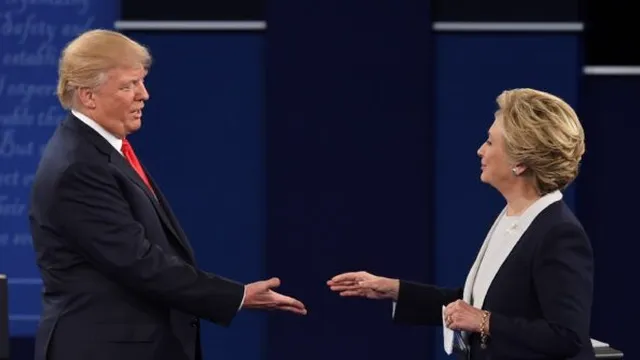
US presidential debates: memorable gaffes and scandals through the years
2024-09-09 00:00- Gerald Ford's claim of no Soviet domination in Eastern Europe during a Cold War debate was a significant gaffe.
- Ronald Reagan effectively used humor about his age to his advantage in the 1984 debate against Walter Mondale.
- Recent debates have highlighted the impact of candidates' behavior and performance on their electoral prospects.
Express your sentiment!
Insights
US presidential debates have been marked by significant gaffes and memorable moments that have shaped political narratives. Notably, during the Cold War, Gerald Ford made a critical error by claiming there was no Soviet domination of Eastern Europe, a statement that contradicted the reality of Soviet military presence. This misstep arguably cost him the presidency. Ronald Reagan, on the other hand, cleverly turned his age into an asset during his debate against Walter Mondale, asserting he would not make age an issue, which resonated positively with voters. In more recent debates, candidates have faced scrutiny for their behavior. George H.W. Bush was caught glancing at his watch during a town hall debate with Bill Clinton, which was perceived as disrespectful and contributed to his defeat. Barack Obama countered Mitt Romney's claim about the Navy's size with a memorable retort about modern naval capabilities, showcasing the importance of quick thinking in debates. The 2016 election saw a particularly contentious debate between Donald Trump and Hillary Clinton, where Trump’s remark about Clinton being in jail highlighted the aggressive tone of the campaign. The 2020 debate between Trump and Joe Biden devolved into chaos, with Biden's outbursts against Trump’s interruptions marking a low point in debate decorum. Most recently, Biden's performance in a June 2024 debate raised concerns about his age and capability, leading to speculation about his candidacy. This debate was pivotal, as it set the stage for Biden to eventually withdraw from the race, paving the way for Kamala Harris to emerge as a new challenger against Trump.
Contexts
The U.S. presidential debates have historically influenced public perception and electoral outcomes. Recently, President Joe Biden withdrew from the presidential race after a disappointing debate performance and declining poll numbers. Senator John Fetterman suggested that Biden could have won against Donald Trump had he remained in the race, indicating a belief in Biden's potential despite recent challenges. As Biden steps back, Vice President Kamala Harris is seen as a key figure for the Democratic ticket in the upcoming election. However, Trump campaign adviser Corey Lewandowski criticized Harris for her inconsistent policy positions, particularly on fracking and border security, which he argued could alienate voters concerned about national security. The political landscape is further complicated by Biden's announcement of not seeking re-election, which signals a shift in U.S. political dynamics. This comes amid ongoing concerns about foreign interference in elections, with the Biden administration accusing Russia of attempting to influence the 2024 presidential election through disinformation campaigns. These developments highlight the importance of optics and presentation in political discourse, especially as both parties prepare for the upcoming election cycle, with Trump also facing scrutiny over his speaking style and mental clarity during rallies.